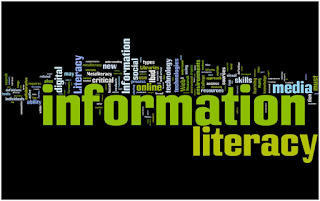Scholarly Review 1-Adullahi Article
In order to understand their patrons, prospective information professionals must first examine their own sociocultural identities. . . . They need to explore the various social and cultural gorups to which they belong, including those identified with race, ethnicity, social class, language, and gender. (Adullahi, 454).
In his article, Diversity and intercultural issues in library and information science (LIS) education, Ismail Adullahi argues that socially conscious LIS educators can prepare future library professionals to effectively serve the information needs of increasingly diverse patron communities. In the above quote, Adullahi defines a key element of a socially conscious librarian: self-knowlege. To effectively serve their patrons, librarians must first understand where they fit within various sociopolitical categories.
This is an excellent start. But I argue that the profession as a whole should conduct some type of sociopolitical introspection. What are the salient characteristics of librarians? We seem to know that our profession is overwhelmingly white, middle-class, and female. We are highly educated (a masters degree just to enter the field); we are service-oriented and largely shaped by Western European/American thought.
So, how can we use this knowlege to better server our patrons. First of all, we need to understand that we are part of that diversity, not the standard against which diverse populations must measure. We, as Adullahi suggests, "need to engage in autobiographical exploration, reflection, and critical self-analysis" to understand our situated professional identity (454). I argue that because we are largely female, we may consider ourselves "nurturers" of information seekers. We know what is best for them. We organize the information according to our standards because the "folksomonies" of our patrons seem rather unruly. As such, we often have to guide our patrons, like eager toddlers, through our databases, indices, and catalogs. And we may think this is natural.
I argue, however, that we need to revise this reflection. As a highly educated reference assistant, I have more than once been in a situation where an apparently less educated patron has taught me that our nurturing stance occasionally hinders effective service. For instance, a mature Muslim woman wanted to find articles about the epic Old English poem, Beowulf. I conducted what I considered a standard reference interview. But the woman's increasing frustration demonstrated that I was being "motherly," almost condenscending to her.
I was the professional; she was the client. I would serve her. I had to stop and remember that this woman (who spoke at least 4 languages) had non-Western information seeking behavior and knowledge that may have been superior to my own training. I had to remember that she was a human being whose specific cultural, political, social, and economic identities are assets, not liabilties for me to overcome. From then on, I learned to collaborate with patrons and to respect the knowlege and skills they bring with them.
In short, we are part of a diversity. When we examine ourselves critically and truthfully, we will respect our patrons and provide them with with useful collaborations, not dominating professional service. At least I hope we will.
REFERENCES
Adullahi, Ismail. (2007). Diversity and intercultural issues in library and information science (LIS) education. New Library World, 108 (9/10) 453-459. doi: 10.1108/03074800710823980


Comments
Post a Comment